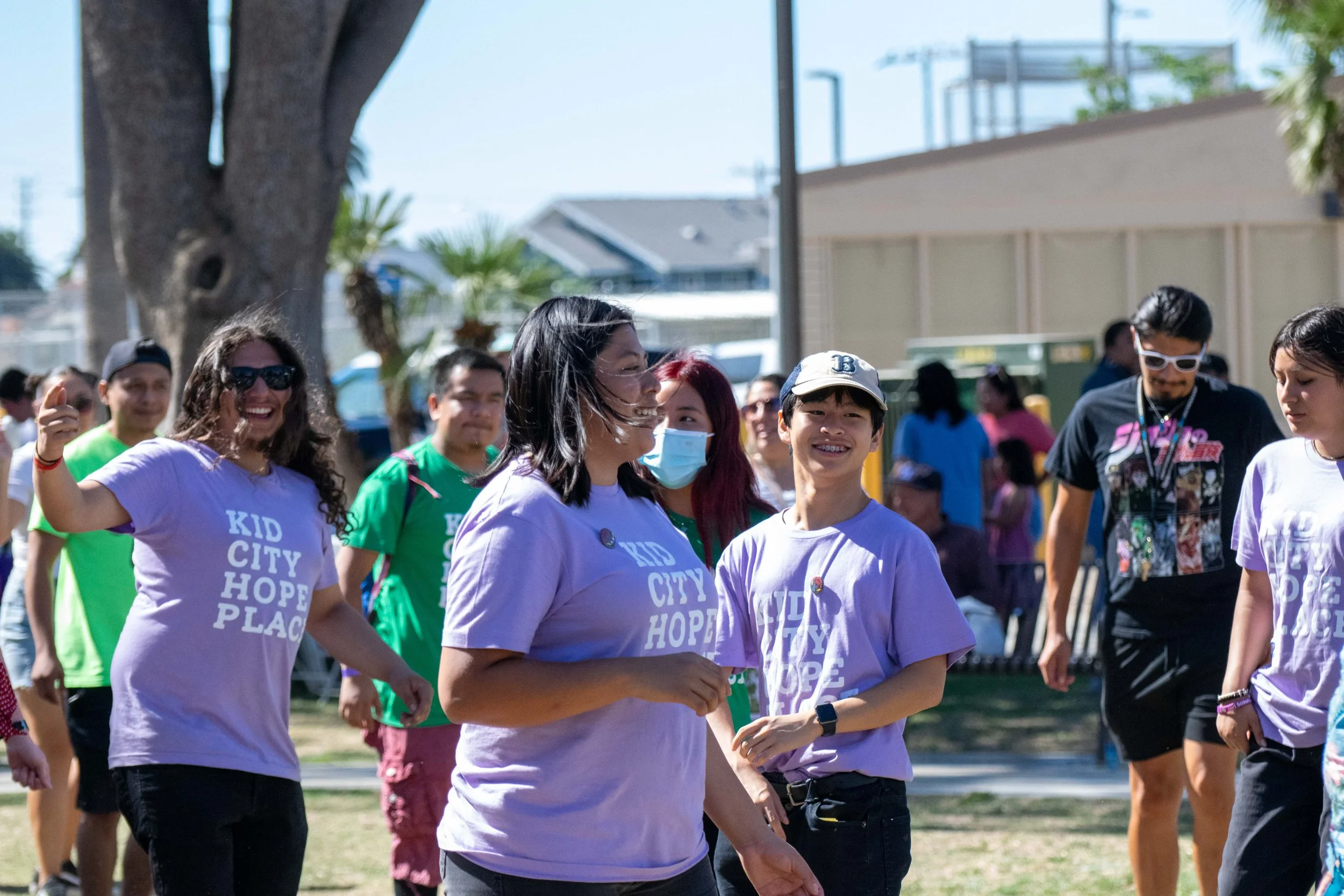
About Kid City
Founded in 2008 by the Urban Foundation in the heart of Los Angeles, Kid City Hope Place encourages teens and young adults to find their voice, share their stories, and become self-empowered leaders to overcome systemic barriers in their education and careers. Providing services in college access and success, career prep, music and arts, we bring together the gifts and talents of staff and volunteers to cultivate a supportive and welcoming environment for the youth we serve.
Mission
Kid City’s mission is to activate the innate potential of young people in South and Central Los Angeles through holistic youth development programs that cultivate self-empowered leaders and build a community committed to equitable college and career success.
Kid City Values
At Kid City, we foster:
-
Community keeps us grounded. While we act with consideration of each other, we respond to collective needs. Communal awareness endows every Kid City Member with unique leadership that puts unity first.
-
In radical welcoming spaces, all are welcome. Once welcomed, participants are charged with welcoming others. In that way, we support a sense of belonging and a responsibility to uphold a welcoming space.
-
Youth-centered spaces reflect the culture, needs, and vision of youth. They are a responsive and adaptable “third space” apart from home and school where youth are safe to develop, learn, and come into their identity and power.
-
Music is one of the most accessible and communal art forms. At Kid City, we enjoy music-making, sharing, and performing. Bands practice in the band room, and music wafts through the space, lifting everyone.
-
Kid City appreciates the cultural wealth of participants and their families. We affirm an asset-based lens that validates lived experience, and invites everyone to contribute their knowledge and skills.
-
Kid City’s approach to learning cultivates a “community of learners” that practices reflection and critical analysis, and is informed by Freire’s advice not only to read the word, but to “read the world,” Kid City is a place to be curious, explore, and learn without fear.
-
Kid City is committed to diversity, equity, and inclusion in all spaces. That means listening to underrepresented voices in visioning, strategy, decision-making, and building new tables where everyone has a seat.
Statement of Inclusivity
Kid City Hope Place is dedicated to promoting, nurturing, and protecting a culture that values diversity, equity, inclusivity, accessibility, and a sense of belonging for all individuals. Kid City recognizes and appreciates the diversity in our community. Discrimination or harassment of any kind will not be tolerated at Kid City. This includes but is not limited to discrimination based on race, age, gender/gender identity, religion, sexual orientation, national origin, caste, socio-economic status, and ability.
In the fall of 2008, Kid City started when five kids from First United Methodist Church of Los Angeles -- Kwesi, Kofi, Kobe, and Queen Essilfie and their friend, Kenny Tilmon, asked Pastor Sandie Richards for an after-school program.
Those kids brought in friends from Hope Village, and staff at that time like Ben Ede and Jessie Moore provided snacks, helped with homework, and created a lighthearted, welcoming environment that gave birth to BAUD!, the first Kid City band. Many years later, that scrappy little afterschool program has become a cherished and highly regarded college access & completion, music and leadership program. Why music and college?
How It All Started
Higher education is a key predictor for families to achieve economic stability, yet the road to college has multiple financial and institutional barriers. And music is integral to Kid City — the joy of learning a beat or a chord easily translates to the joy of learning anything.
Kid City challenges educational inequity and economic hardships in our communities by providing students ways to access opportunities to explore their intellectual curiosity and creative joy, and discover their ability to advocate for themselves and lead their communities.


